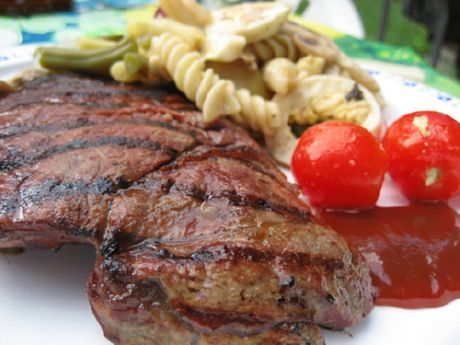Medical expert of the article
New publications
How to prevent food poisoning on vacation?
Last reviewed: 01.07.2025

All iLive content is medically reviewed or fact checked to ensure as much factual accuracy as possible.
We have strict sourcing guidelines and only link to reputable media sites, academic research institutions and, whenever possible, medically peer reviewed studies. Note that the numbers in parentheses ([1], [2], etc.) are clickable links to these studies.
If you feel that any of our content is inaccurate, out-of-date, or otherwise questionable, please select it and press Ctrl + Enter.
When traveling, everyone wants to try food from different countries and experiment with local cuisine. However, in most cases, this leads to food poisoning. What should a tourist know in order not to spoil the impression of the holiday and return to his native land alive and well? Scientists have prepared a number of recommendations, following which you can avoid the summer misfortune. This is reported in the magazine Health, Diet & Fitness.
Travellers' Diarrhea
Travelers' diarrhea (a disorder of the gastrointestinal tract in people who have just arrived in another climate zone) is the number one cause of feeling unwell during a vacation. According to some data, 30-70% of vacationers become victims of diarrhea, regardless of their location. Usually, everyone believes that you can avoid gastrointestinal problems by following a simple recommendation - cook and peel food or not think about anything bad at all, but research by scientists has shown that this advice does not work, and tourists still experience travelers' diarrhea. Poor hygiene in local restaurants is one of the most common risk factors for travelers' diarrhea.

Avoid tap water
According to scientists, this is the most common route of transmission of foodborne infections. Foods such as pani puri or gol gappa (street food in India: cubes of potatoes, chickpeas and tomatoes in a basket of dough fried in oil, served with sauce) should be avoided. Tap water is used for its preparation. “The products and juices may be very tasty, but the effect will not be the most pleasant: food poisoning or chronic diarrhea. Even minimal intake of contaminated water can make a person writhe in pain,” the experts write.
How to quench your thirst while traveling?
You can buy bottled water and juices from popular manufacturers. "As for tea, if boiled water is used in its preparation, tourists have nothing to worry about. We recommend that travelers stock up on water-purifying tablets that disinfect water and preserve its taste. They are often used in places where there are no vending machines," the authors of the article advise.
Consumption of raw vegetables and fruits
Raw vegetables and fruits can be safely consumed in restaurants that comply with all sanitary and hygienic standards. "If you are in the rainy season, you should avoid raw vegetables and fruits. Rain, unsanitary conditions and bacteria... All this will lead to sad consequences. All vegetables and fruits should be thoroughly washed, peeled and cooked. This way you can avoid the risk of catching a food infection. You should also avoid eating street food in countries where hygiene rules are not controlled, products left open for a long time.
Travel tips:
- explore the area around the restaurant
- avoid dishes that contain uncooked eggs and milk (they need to be refrigerated and cannot be stored at room temperature)
- drink plenty of water (1.5-2 liters per day)
- eat only boiled food
- give preference to fruits with skin
- consume pasteurized fermented milk products.
Doctors note that travelers should have a first aid kit with them. Thus, among the drugs for normalizing the gastrointestinal tract on vacation, you will need sorbents - drugs that slow down stool, enzyme preparations that promote enhanced digestion of food, as well as drugs that normalize intestinal microflora (they actively produce acids, are destructive for salmonella, staphylococci and dysentery pathogens and prevent the development of long-term intestinal disorders with all the unpleasant consequences).


 [
[